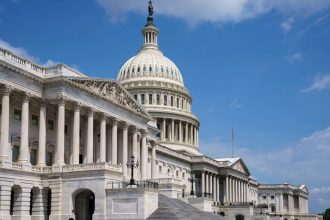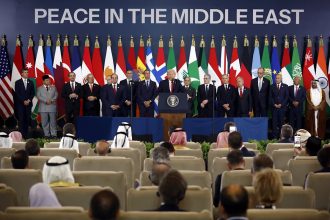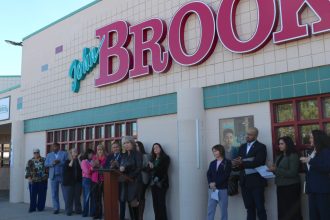Nov. 17 (UPI) — In an unprecedented voter turnout, Ecuadorians on Sunday overwhelmingly rejected a government proposal to allow U.S. military bases on national territory.
With a historic 82.3% turnout, more than 9 million Ecuadorians went to the polls to vote on four reforms backed by President Daniel Noboa.
Among the questions was one asking whether to authorize foreign military bases or facilities for military purposes in Ecuador, as well others related to proposals to reduce the number of assembly members and eliminate state financing for political parties.
The “No” vote prevailed on every measure, with margins ranging from 56% to 63%, according to official data from the National Electoral Council, which had counted 98% of ballots.
The consultation, presented by Noboa’s government as a tool to “modernize the state” and “restore security,” split political opinion.
The ruling Acción Democrática Nacional party, along with business groups and allied media outlets, pushed the “Yes” campaign with a message focused on institutional efficiency and the fight against organized crime.
Noboa traveled the country defending what he called the need for “a new architecture of power” that would allow the government to “govern without obstacles.”
On the opposing side, a broad coalition of political parties, social movements, academics and Indigenous organizations aligned with the “No.”
Citizen Revolution, led by former President Rafael Correa, was among the most vocal critics.
“Our Constitution has been an example for the world. The problem is not the constitutional framework but the management of recent governments. Noboa wants to justify his failure and get a blank check to privatize social security, public health, education and strategic sectors,” Correa said.
The Confederation of Indigenous Nationalities of Ecuador warned that reducing seats would weaken the voice of rural provinces and Indigenous peoples. Even centrist and right-leaning groups, including the Social Christian Party, distanced themselves from the government, questioning the timing and content of the proposals.
On Sunday night, as results became clear, Noboa acknowledged the defeat, but avoided calling it a failure.
“The people have spoken and we respect their decision. This is not the end of our project, but an opportunity to strengthen it through dialogue and legality,” he said in a televised address.
Noboa said his government will continue pushing reforms “through institutional channels” and urged the National Assembly to “work for the country, not for partisan interests.”
“We consulted Ecuadorians and they have spoken. We fulfilled what we promised: to ask them directly. We respect the will of the Ecuadorian people. Our commitment does not change; it grows stronger. We will keep fighting tirelessly for the country you deserve, with the tools we have,” Noboa later said on X.
The defeat at the polls represents a significant political setback for Noboa, who had invested part of his political capital in the referendum.
Although it was not a recall vote, many saw the plebiscite as a measure of public support for his administration. Analysts say the result weakens his room to maneuver, especially with a fragmented Assembly and a security crisis that shows no sign of easing.
Even so, the government has moved to redirect its strategy. Spokespeople for the ruling party said they will pursue some reforms through legislation and seek agreements with moderate factions.
At the same time, a cabinet reshuffle is expected, along with a reset of the president’s message with a greater focus on economic management and public security.









